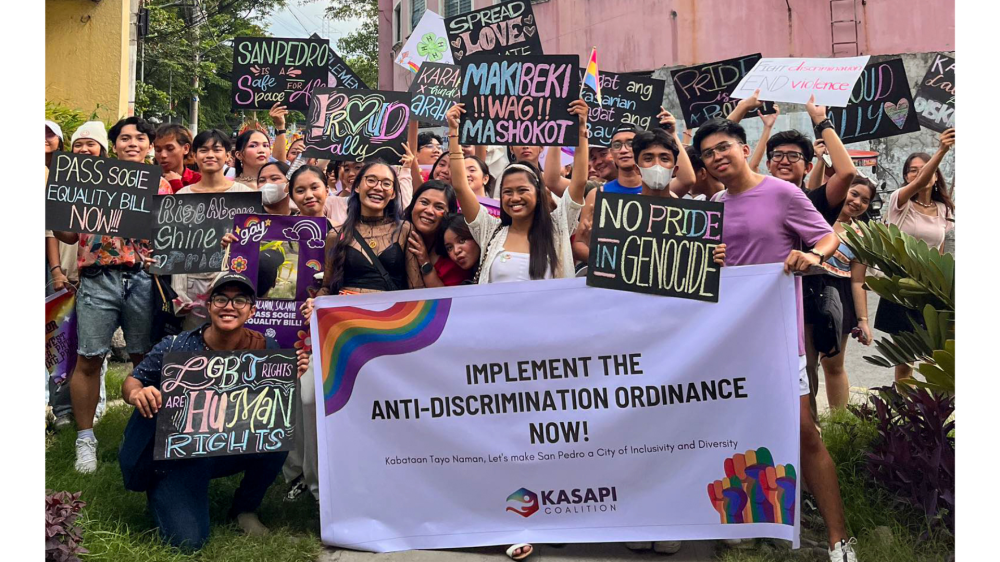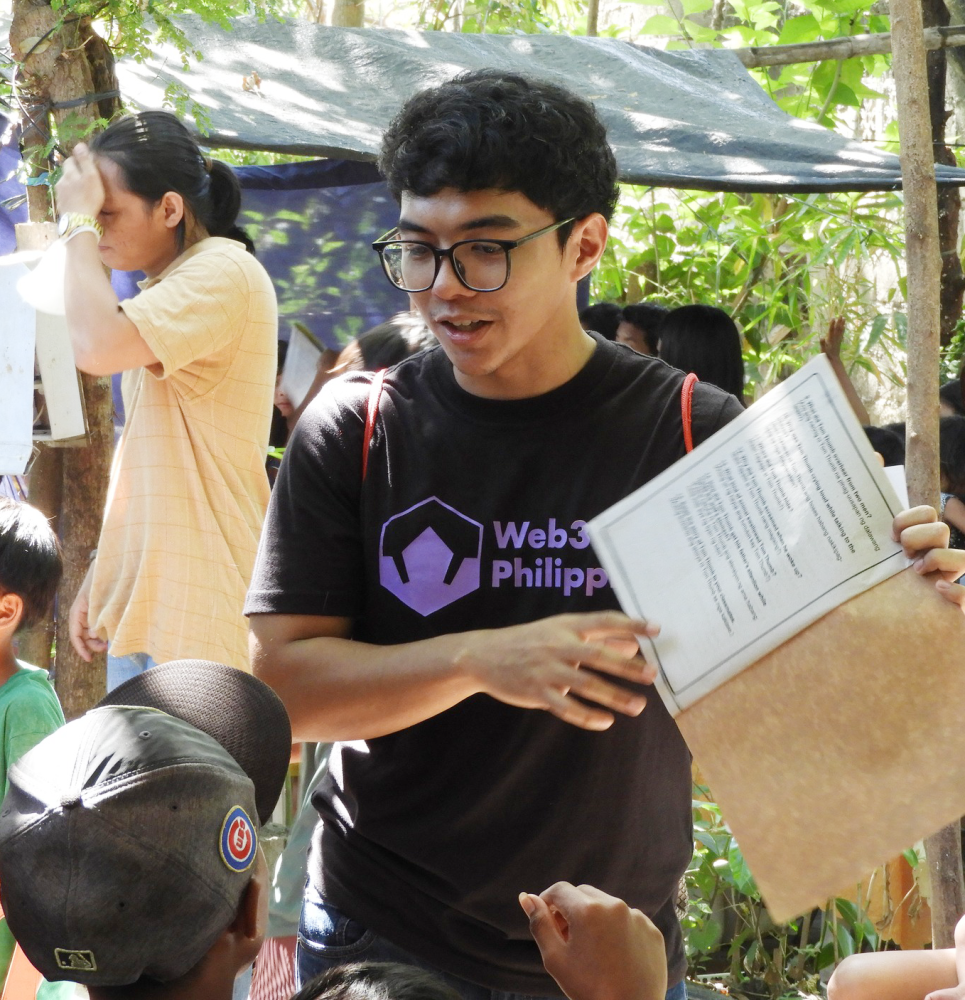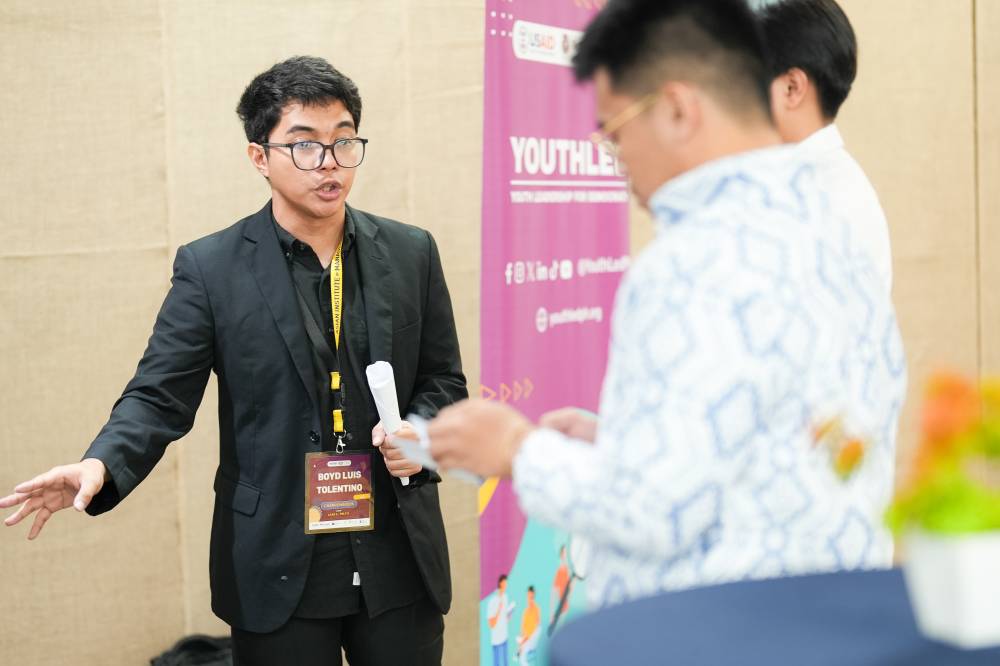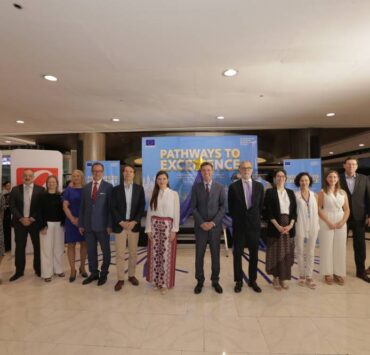Creating hope for an inclusive democracy

They say life can change with a single decision, but that sounds like a worn-out cliché—until it happens to you.
It was a Friday afternoon in July 2023. I was wrapping up work when my phone rang. It was professor Manny de Vera from the Asian Institute of Management (AIM). A spot had opened up in the Leadership and Democracy (LEAD) Fellowship, an initiative by the Youth Leadership for Democracy (YouthLed), a joint project of the United States Agency for International Development (USAID) and The Asia Foundation.
Someone backed out at the last minute, and I was next on the waiting list. The first week-long workshop was starting soon.
When I applied for the fellowship, it felt like a long shot. I didn’t have the years of experience and credentials that I imagined my peers would bring to the table. When the letter arrived telling me I hadn’t made the initial cut, it stung, sure, but it wasn’t the end of the world.
But now, faced with this sudden opportunity, I felt a rush of panic. I quickly packed my bags, and set off for AIM.
What followed was one of the most challenging yet rewarding experiences of my life.
Imposter syndrome
Imposter syndrome hit me hard. My cofellows were accomplished leaders and public servants. Our professors spoke with insight and depth, while my classmates responded confidently during discussions. I felt out of place. I didn’t feel like a leader, at least not like them.
But as the days passed, I started to see leadership differently. It wasn’t about being the loudest in the room or having the most impressive résumé. It was about listening, reflecting, and bringing people together—what our professors call “bridging leadership.” Slowly, I realized I wasn’t as out of place as I thought.
By the end of the week, with the support of my cofellows, I started to believe that I did belong. Maybe not entirely—I still had that nagging feeling of being an imposter—but enough to know I had a place here.
One of the most eye-opening moments of the fellowship was a lecture by former dean Ronald Mendoza from the Ateneo School of Government. His talk on political inequality struck a nerve. The political landscape in the Philippines is stacked against ordinary citizens. Nearly 80 percent of seats in the House of Representatives are held by political dynasties. This concentration of power prevents genuine democratic participation, hinders checks and balances, and stifles economic progress.
This was the issue I wanted to tackle during the program. It’s a tough challenge, with its root causes deeply entrenched in our institutions. And, frankly, who are we—mere ordinary citizens—to challenge it?
But it is, in fact, our duty to do so.

Political spaces
Growing up, I thought politics was inherently dirty, magulo. Politicians, corrupt. However, as I began to engage more actively with my community, I realized that lasting change requires ordinary citizens to step into political spaces. As they say, “Everything is political.” Charles de Gaulle put it best: “Politics is too serious a matter to be left to politicians.”
When I joined the program, my project was simple: encourage more young people to run for office, especially in the Sangguniang Kabataan (SK). But as I dove deeper, I realized the issue wasn’t just about increasing numbers. The core problem was the weakness of political parties—institutions meant to unite the interests of citizens, train future leaders, and hold those in power accountable. Instead, they’ve become little more than electoral vehicles by traditional politicians.
It wasn’t enough to bring in new faces; we had to ensure they wouldn’t fall into the very system they aimed to reform. I shifted my focus. Instead of simply increasing the number of young people in office, I aimed to create a space where they could be nurtured, guided, and supported in their efforts to make a difference in governance.
This idea evolved into the Kasapi Politics Lab: Kabataang Aktibo Para sa Politikang Inklusibo—a space to experiment with solutions to improve our political system. One such experiment involved creating alternative local institutions from the ground up that could take on the roles that political parties were supposed to play.
This vision began to take shape with the formalization of the Kasapi Coalition, an alliance of youth leaders and organizations in San Pedro, Laguna. Beginning with 12 organizations advocating various issues—from agriculture to historic preservation—we united under a shared mission: to create spaces where the youth of San Pedro not only participate in governance but also take the lead in shaping their future.
Alliance of youth leaders
In the months that followed, our coalition made steady progress. One of our biggest wins was successfully pushing to implement the Anti-Discrimination Ordinance in San Pedro, which had been stalled for over a year. We raised awareness through letters and an advocacy rally during the city’s Pride March. The ordinance was eventually published—marking the first step toward its implementation. Work on the Implementing Rules and Regulations (IRR) is now underway.
We engaged with our Local Youth Development Council and SK Federation to advocate for grassroots consultations on the San Pedro Youth Code. This initiative led to the formation of a technical working group for the Youth Code that included several of our members. We organized two consultations, with more planned for the future, and supported our City Youth and Sports Development Office during our Linggo ng Kabataan events.
At the same time, we started drafting the San Pedro Youth Agenda, which was developed through grassroots consultations and discussions with representatives from various youth organizations.

Bold move
Our coalition also made a big decision: We nominated and supported one of our members to run for councilor in the 2025 local elections. It’s a bold move. Despite our limited financial resources and lack of political experience, we’re pushing forward. It reflects our conviction in the need for more champions advocating for youth-centered reforms in the City Council, a move we formally announced at the Kasapi Convention last September.
Recently, during Severe Tropical Storm “Kristine” (international name: Trami) we mobilized volunteers and provided relief goods to nearly 600 families. Through our initiative #RescueSanPedro, we coordinated rescues with the local City Disaster Risk Reduction and Management Office and now plan to collaborate with them on training and sustainable disaster response initiatives.
There’s a certain strength in realizing we need others, and that’s one of the biggest lessons I took from the fellowship. I wouldn’t have made it through without the support of my cofellows, who have now become some of my closest friends. In my community, we wouldn’t have made progress without each other’s support.
Building bridges
Our country’s problems are deeply rooted and solving them requires more than a few powerful individuals. It demands all of us to recognize our need for each other and to keep building bridges with one another.
I’m deeply grateful to the USAID, The Asia Foundation, YouthLed, AIM, Ateneo School of Government, and Ayala Foundation for the opportunity. I’m very thankful to my coaches, Manny de Vera and Sam Madriaga, for their invaluable support. And, of course, to my cofellows, who have made this journey all the more meaningful.
The fellowship may have ended, but our journey is far from over—we’re just getting started.
We’ll keep collaborating with organizations, including the government, training new leaders, and launching initiatives to improve the lives of the youth and ordinary citizens. Soon, we’ll also launch Kasapi.org, an online platform and resource hub for youth eager to engage in democratic spaces.
Tackling political inequality and pushing for a more inclusive democracy in our country is a daunting task. With limited resources and a political climate where solutions like political reforms feel unreachable, the road ahead can feel like a lost cause. But even so, I believe it’s still our duty to do something—no matter how small—in our own little corner of the world. As Albert Camus once said, “Where there is no hope, it is incumbent on us to create it.”
We don’t wait for hope—we create it.
Boyd Luis Antonio “LA” Tolentino is one of the YouthLed project’s LEAD Fellows in 2023 under the Changemakers Track. YouthLed is a joint project of USAID and The Asia Foundation that aims to increase the civic engagement of Filipino youth, leading to their strengthened participation in democratic governance.

















